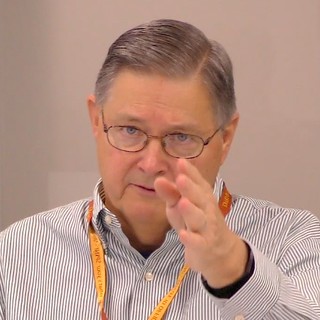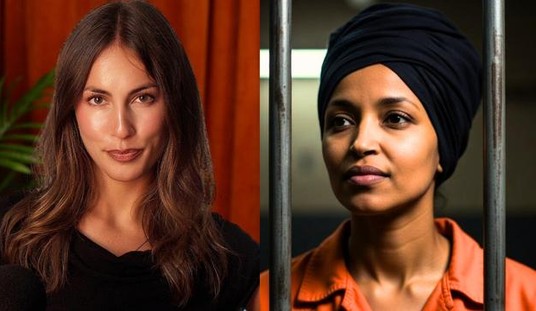When Santa Clara County (Calif.) Superior Court Judge Peter Kirwan imposed $55,000 in fines on Calvary Chapel San Jose for defying the state’s ban on indoor worship, he warned church officials against resistance.
“Even if you disagree with those opinions, these orders do have a purpose,” Kirwan told Pastor Mike McClure and the church’s attorneys. “You can’t just ignore those rules and regulations, nor can you ignore a court order just because you disagree with them.”
Judge Kirwan should spend a little time reading the New Testament book of Acts, especially in its fifth chapter, which relates what happened when Peter and the Apostles were jailed by the Sanhedrin for talking about Jesus’ resurrection.
When told to stop doing so, Acts tell us, “Peter and the apostles answered, ‘We must obey God rather than men.’” The chapter concludes by noting that “every day, in the temple and from house to house, they did not cease teaching and preaching that the Christ is Jesus.”
It’s hard not to hear echoes of Acts in the battles being waged today by McClure, Grace Community Church’s Senior Pastor John MacArthur in Los Angeles, Godspeak Calvary Chapel’s Pastor Rob McCoy in Thousand Oaks, and nearly a dozen other pastors and congregations throughout the Golden State.
And it’s not just in established churches and it’s not just in California. Early in the early summer weeks of the national lockdown, hundreds of people turned out for worship and baptisms at Huntington Beach in California.
“What we’re seeing now is a return back to a gritty, raw Gospel, Jesus people movement foundation. A lot of that is in part because we can’t be in our churches,” worship leader Sean Feucht told Christian Post.
“We are kind of forced to be outside of our buildings and forced to be innovative and creative and come up with alternate solutions,” said Feucht, who went on to lead gatherings on beaches and elsewhere in Seattle, Portland, Chicago, and Washington, D.C.
Something is stirring spiritually in the nation’s collective consciousness, it seems. And the timing of a November address to a group of lawyers by Supreme Court Associate Justice Samuel Alito just might be providential as well.
Alito began by noting politicians at every level have used Covid to issue executive edicts that “resulted in previously unimaginable restrictions on individual liberty … all that I am saying, and I think it is an indisputable statement of fact, we have never before seen restrictions as severe, extensive and prolonged as those experienced for most of 2020.”
And none more so than those aimed at worshipping church congregations. Reminding his audience that the 1993 Religious Freedom Restoration Act (RFRA) was passed almost unanimously by a Democratic Congress and president, Alito warned that “It pains me to say this, but in certain quarters religious liberty is fast becoming a disfavored right … Today that widespread support has vanished, when states have adopted their own versions of RFRA, they have been threatened with economic boycotts.”
He cited “the protracted campaign” against the Little Sisters of the Poor Catholic charity, who “have been under unrelenting attack for the better part of a decade. Why? Because they refuse to allow their health insurance plan to provide contraceptives to their employees.”
Alito also pointed to the Masterpiece Cakeshop Decision out of Colorado and the Ralph’s Pharmacy case from Washington state, noting that “for many today, religious liberty is not a cherished freedom, it’s often just an excuse for bigotry and it can’t be tolerated.”
But then a few days later, came the high court’s 5-4 decision in Catholic Diocese of Brooklyn v. Andrew M. Cuomo, Governor of New York.
Justice Neil Gorsuch wrote that under Cuomo’s Covid edicts, “people may gather inside for extended periods in bus stations and airports, in laundromats and banks, in hardware stores and liquor shops.”
“No apparent reason exists why people may not gather, subject to identical restrictions, in churches or synagogues, especially when religious institutions have made plain that they stand ready, able, and willing to follow all the safety precautions required of ‘essential’ businesses and perhaps more besides,” he added.
“The only explanation for treating religious places differently seems to be a judgment that what happens there just isn’t as ‘essential’ as what happens in secular spaces,” wrote Gorsuch. “Indeed, the Governor is remarkably frank about this: In his judgment laundry and liquor, travel and tools, are all ‘essential’ while traditional religious exercises are not. That is exactly the kind of discrimination the First Amendment forbids.” (emphasis added)
That Brooklyn is likely to be an enduring gift is clear from a subsequent case in the California Superior Court in which Judge Gregory Pulskamp explicitly cited that decision against Gov. Gavin Newsom’s ban on church gatherings.
“The Supreme Court’s decision in Brooklyn Diocese v. Cuomo has opened the way to the liberation of churches from the absurd and bigoted superstition that they are veritable death chambers threatening the entire population,” Thomas More Society Senior Counsel Chris Ferrara said of Pulskamp’s decision.
Thank you, Justice Alito.










Join the conversation as a VIP Member